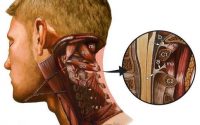Manual activities may improve brain health
The human hand’s unique structure and capabilities have been instrumental in the development of our species, impacting everything from cultural practices to technological advancements.
However, modern lifestyles have led to a decline in complex hand activities. Much of today’s routine involves simple gestures like tapping screens or pressing buttons. Experts suggest that this shift from intricate hand tasks could impact our cognitive and emotional processes.
An article from the New York Times explored this topic with Dr Kelly Lambert, a behavioral neuroscience professor at the University of Richmond, Virginia, In animal studies, they observed that rats engaging their paws for food showed better stress responses and problem-solving skills than those given food effortlessly.
Experimental human studies have shown that activities like knitting, gardening, and colouring may lead to cognitive and emotional improvements, including enhanced memory, attention, and reduced anxiety and depression symptoms.
While these studies don’t conclusively attribute these benefits to hand involvement alone, researchers speculate activities like coloring or art work might promote mindfulness, beneficial for mental health. For example, the rhythm and repetition in knitting have a meditative, calming effect, suggesting a relationship between manual tasks and well-being.
Studies also demonstrate that engaging hands might combat feelings of helplessness common in depression, suggesting that visible results from manual effort, like a knitted scarf, can foster a sense of accomplishment and control.
Recent research also explores the impact of substituting complex hand tasks with simpler ones. A Norwegian study compared the neurological effects of handwriting to typing, finding handwriting activates more complex brain activity. This observation could be that handwriting involves unique, intricate movements for each letter, activating specific memories and brain pathways. In contrast, typing uses repetitive, simple movements, engaging the brain less.
This research indicates that tasks involving fine motor skills might be crucial for brain stimulation. Reducing such activities could weaken brain functions like attention, memory formation, and problem solving.
Working productively with our hands provides profound pleasure and is essential for physical and mental health. Engaging in physical tasks that produce tangible results can activate the brain’s reward circuit, thus could reduce stress, anxiety, and the risk of depression, while enhancing a sense of control and connection with the environment.
Despite these findings, some experts question whether the benefits are due to hand movements or the mental engagement they require. Some suggest that complex decision-making tasks might be more significant than the physical use of hands.
Nonetheless, the advantages of hands-on activities, including arts and music, are widely acknowledged. Engaging in manual tasks can have a variety of benefits for our brains. These activities often involve a combination of physical dexterity, mental concentration, and sometimes creative problem-solving, all of which can contribute to improved cognitive functioning and mental well-being.
While manual tasks primarily engage the brain in cognitive and motor activities, massage therapy primarily affects the brain through physiological changes that lead to stress reduction, improved mood, and better overall mental health. Both contribute to a holistic approach to maintaining brain health and well-being.

